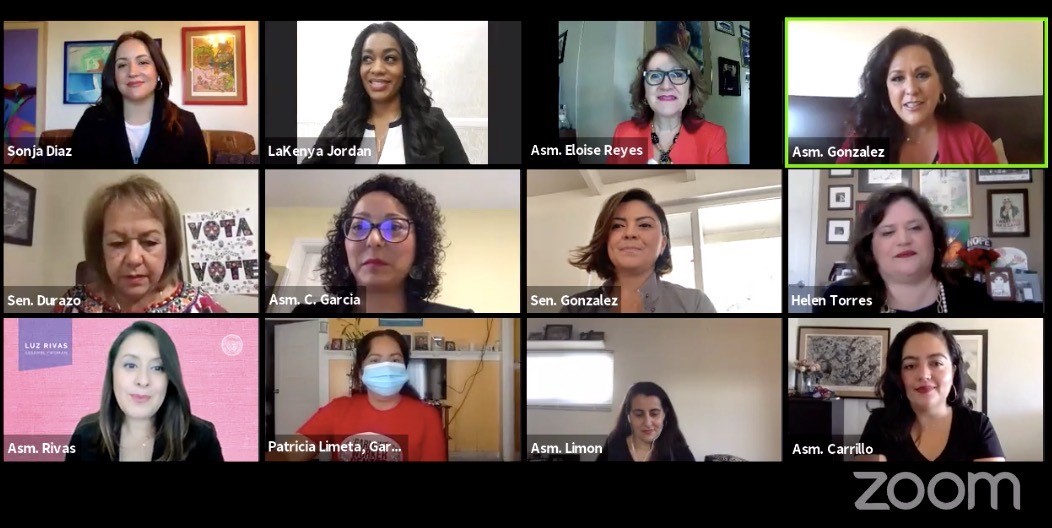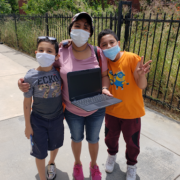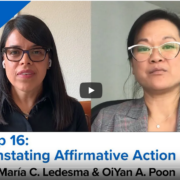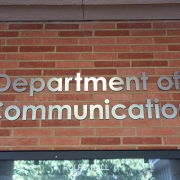Latinas in California Remain Invisible in Policymaking: UCLA Alumni and Researchers are Looking to Change That
The UCLA Latino Policy and Politics Initiative has supported the efforts of California’s Unseen Latinas Initiative headed by UCLA Alumna and California Assemblymember Lorena Gonzalez (UCLA Law ‘99)
By Nick Gonzalez, Latino Policy & Politics Initiative (LPPI) Policy Analyst

Latinas make less than their male and female counterparts, have never served in a statewide elected position and remain underrepresented in corporate leadership positions. A new two-year effort launched by Asm. Lorena Gonzalez (UCLA Law ‘99) and the California Latino Caucus seeks to tackle the inequities that the state’s Latinas face.
UCLA Latino Policy and Politics Initiative faculty and staff have been at the forefront of “Unseen Latinas” by providing expert testimony in its first year of public hearings to identify problems and solutions. Through cross-sectoral research, a team of UCLA LPPI female experts have been putting a data-driven lens on the educational, economic and career barriers that Latinas must overcome.
“By launching the Unseen Latinas initiative, California’s leaders are making it clear that they understand that the state’s continued economic prowess requires that Latinas have a fair chance to succeed and thrive,” said Sonja Diaz, UCLA LPPI founding director, who participated in the October 2020 launch event. “Especially as we emerge from the pandemic, it’s time to make sure that no one gets left behind in the recovery and bright future that lies ahead.”
Latinas make up nearly 20% of Californians, and Latina participation in the U.S. workforce was expected to grow by 26% in the next 10 years. Yet, new research from LPPI shows that Latinas exited the workforce amid the pandemic at higher rates than any other demographic amid the pandemic, making it clear that recovery efforts should provide specific assistance to help them recover financially and get back on their feet.
“California has an opportunity and responsibility to lead what it means to have a just and equal economy,” said Asm. Gonzalez. “UCLA LPPI has been a valuable partner on the Unseen Latinas Initiative. LPPI experts have shared key testimony by shining a light on the inequalities Latinas continue to face, as well as the opportunities that exist to make sure Latinas are no longer unseen and can participate in the state’s prosperous future.”
In an October conversation about the Latina wage gap, Diaz urged action to address the childcare and family obligations that pushed Latinas out of the workforce during the pandemic. Without a clear plan to bring them back into the labor market, the repercussions could be devastating for Latino families and for the state’s economy, she said.
UCLA LPPI expert Dr. Mary Lopez, an economics professor at Occidental College continued the conversation in a January hearing on the labor market, testifying that policy solutions such as affordable childcare and job training would be essential in reducing workforce inequities for Latinas.
Part of the invisibility of the needs and strengths of the state’s Latinas comes from the lack of representation in media and popular culture. At an April hearing, UCLA LPPI expert Dr. Ana-Christina Ramón provided testimony from the UCLA Hollywood Diversity Report, which she co-founded and co-authors. Latinos and women are among the groups that remain underrepresented in film relative to their population size.
“We know that Hollywood plays a meaningful role in shaping how people perceive others around them,” Ramón said, who is also the director of research and civic engagement at the UCLA Division of Social Sciences. “When Latinas do not have starring roles or they are not seen as doctors, lawyers, or CEOs, that perpetuates the barriers that they face in achieving their full potential.”
The Unseen Latinas public hearings series also discussed the challenges that Latinas face in breaking into the legal field, with expert testimony from UCLA LPPI expert Jennifer Chacon. For example, the California Supreme Court is another glass ceiling for Latinas, where one has never served as a justice.
For information about the legislators leading Unseen Latinas and for details on upcoming hearings, please visit the Assembly website for the state’s Select Committee on Latina Inequities.









